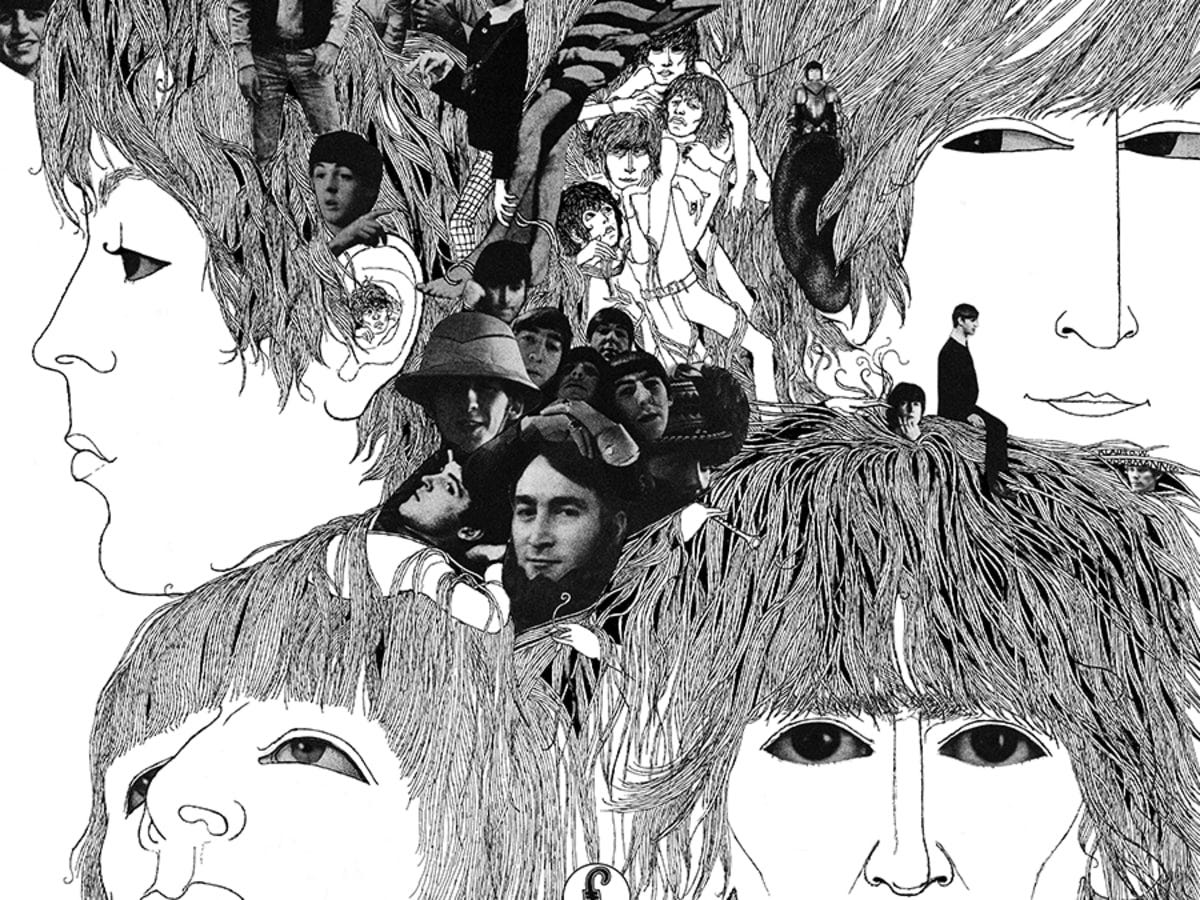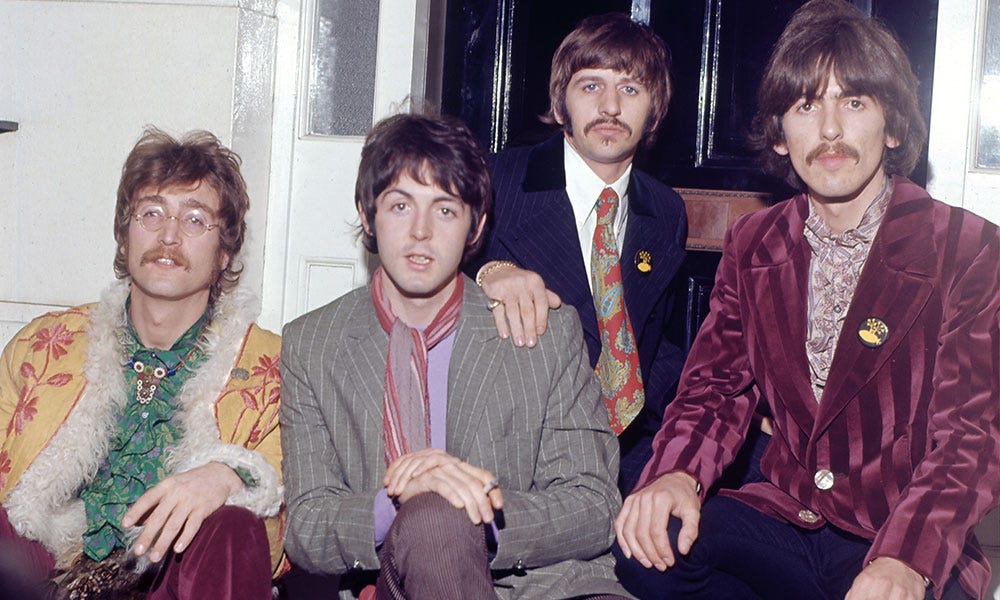"Revolver" by The Beatles
The Beatles, having already achieved immense commercial success, began to push the boundaries of their music, moving away from the straightforward pop songs of their early career.
"Revolver" by The Beatles
"Revolver" was released on August 5, 1966, in the United Kingdom, and August 8, 1966, in the United States.
The album was recorded at EMI Studios (now Abbey Road Studios) in London.
The album was produced by George Martin.
Historical Context
"Revolver" was released during a period of profound change and experimentation in popular music. The mid-1960s saw the emergence of psychedelic rock, influenced by new recording techniques, the use of non-traditional instruments, and the exploration of altered states of consciousness. The Beatles, having already achieved immense commercial success, began to push the boundaries of their music, moving away from the straightforward pop songs of their early career. "Revolver" marked a significant shift towards more sophisticated, experimental sounds, with the band exploring themes of existentialism, social issues, and inner reflection. This album is often cited as one of the greatest and most influential in the history of popular music.
You can listen to this album on YouTube.
Musicians on the Album
The primary musicians on the album were:
- John Lennon: vocals, rhythm guitar, piano
- Paul McCartney: vocals, bass guitar, piano
- George Harrison: vocals, lead guitar, sitar
- Ringo Starr: drums, percussion, vocals
Additional musicians included:
- George Martin: piano, organ
- Alan Civil: French horn
- Anil Bhagwat: tabla
- Members of the London String Quartet: string instruments on "Eleanor Rigby"
Track Listing and Descriptions
Side One:
1. "Taxman"
- Written by George Harrison, "Taxman" opens the album with a biting critique of the British tax system. The song features a driving rhythm, sharp guitar riffs, and sardonic lyrics that reflect Harrison's frustration with high taxes. The track's political commentary and edgy sound set the tone for the album's experimental nature.
2. "Eleanor Rigby"
- This poignant track, primarily written by Paul McCartney, is a stark departure from The Beatles' earlier work. "Eleanor Rigby" features a string quartet arrangement and tells the story of loneliness and isolation. The lyrics, detailing the lives of Eleanor Rigby and Father McKenzie, paint a vivid picture of desolation and societal neglect.
3. "I'm Only Sleeping"
- A dreamy, psychedelic song written by John Lennon, "I'm Only Sleeping" captures the sense of languid detachment. The track features backwards guitar solos and hazy vocals, creating an ethereal atmosphere. The lyrics reflect Lennon's fascination with sleep and the subconscious mind.
4. "Love You To"
- This track, written by George Harrison, showcases his interest in Indian music and philosophy. "Love You To" features sitar, tabla, and other traditional Indian instruments, blending them with Western rock elements. The lyrics explore themes of love, life, and spirituality.
5. "Here, There and Everywhere"
- A beautifully crafted love song by Paul McCartney, "Here, There and Everywhere" features lush harmonies and a gentle melody. The lyrics express devotion and romantic idealism, making it one of the most tender and heartfelt tracks on the album.
6. "Yellow Submarine"
- A whimsical, childlike song sung by Ringo Starr, "Yellow Submarine" is a cheerful, sing-along tune. The track features sound effects and a catchy chorus, creating a sense of playful escapism. Despite its simplicity, the song became one of The Beatles' most popular hits.
7. "She Said She Said"
- Written by John Lennon, "She Said She Said" is a psychedelic rock track inspired by a conversation Lennon had with actor Peter Fonda. The song features shifting time signatures, jangly guitars, and introspective lyrics that explore themes of perception and existential angst.
Side Two:
1. "Good Day Sunshine"
- An upbeat, feel-good track by Paul McCartney, "Good Day Sunshine" features a catchy piano riff and joyful lyrics celebrating the simple pleasures of a sunny day. The song's positive energy and infectious melody make it an enduring favorite.
2. "And Your Bird Can Sing"
- Written by John Lennon, "And Your Bird Can Sing" is a rock song with jangly guitars and cryptic lyrics. The track's upbeat tempo and intricate guitar work create a sense of dynamic tension and excitement.
3. "For No One"
- A melancholic ballad by Paul McCartney, "For No One" features a haunting French horn solo by Alan Civil and introspective lyrics about the end of a relationship. The song's sparse arrangement and emotional depth make it one of the most poignant tracks on the album.
4. "Doctor Robert"
- This track, written by John Lennon, is a mid-tempo rock song with lyrics about a doctor who provides illicit substances. The song's playful tone and catchy melody mask its darker subject matter, creating an intriguing contrast.
5. "I Want to Tell You"
- Written by George Harrison, "I Want to Tell You" features dissonant piano chords and lyrics about communication and frustration. The song's complex harmonies and unusual structure reflect Harrison's growing confidence as a songwriter.
6. "Got to Get You into My Life"
- A soul-inspired track by Paul McCartney, "Got to Get You into My Life" features brass instrumentation and a driving rhythm. The lyrics, initially thought to be about a romantic relationship, are actually an ode to McCartney's newfound appreciation for marijuana.
7. "Tomorrow Never Knows"
- Closing the album, "Tomorrow Never Knows" is one of The Beatles' most experimental tracks. Written by John Lennon, the song features hypnotic drum patterns, tape loops, and lyrics inspired by the Tibetan Book of the Dead. The track's innovative production techniques and surreal atmosphere make it a groundbreaking piece of psychedelic music.
"Revolver" represents a pivotal moment in The Beatles' career, showcasing their willingness to experiment with new sounds and push the boundaries of popular music. The album's diverse range of styles, from rock and soul to Indian music and psychedelia, reflects the band's evolving artistry and their influence on the musical landscape of the 1960s. "Revolver" remains one of the most celebrated and influential albums in rock history, continuing to inspire musicians and listeners alike.

